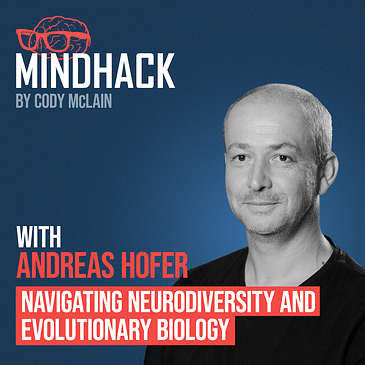Andreas Hofer has been interested in evolutionary psychology for almost 30 years now. His blog 04:29:00-07:00&max-results=13" style="color: #d9534f;">The Bigger Picture discusses ideas he has when he tries to understand the patterns he sees in the world. A self-published author of over 30 books with topics ranging from neurodiversity in children to how misunderstood human beings become misfits.
In this conversation, we’re taking a dive into a theory on evolutionary biology that seeks to explain why up to 0.8% of the world's population has Asperger’s, or high functioning Autism, amongst other topics. What Andreas proposes personally interests me since I myself have a mild case of Asperger's. This is a fascinating conversation for anybody interested in knowing more about neurodiversity in our modern age.
Resources From The Episode
Listen to it on Apple Podcasts
Download as an MP3
Links
04:29:00-07:00&max-results=13" target="_blank" data-w-id="c4b6d3c5-9f31-d93f-4ef5-9c6f0c3726a3" data-wf-id="["c4b6d3c5-9f31-d93f-4ef5-9c6f0c3726a3"]" data-automation-id="dyn-item-resources-from-the-episode-input" style="color: #d9534f;" rel="noopener">The Bigger Picture
Books
The Struggles and Strivings of Gifted Children
Show Notes
00:00 - Evolutionary theory & psychology
03:15 - Human reproduction & offspring
06:08 - Born to Be Different inspiration
09:24 - Hunter-gatherer vs farmer
12:25 - ADHD & creativity
13:55 - Neurodiversity
18:30 - More differences between hunter-gatherers & farmers
19:55 - Traits
23:53 - Technology
24:51 - Societal boundaries
25:57 - Sensitivity among creative people
27:40 - Hunter-gatherer traits
29:06 - Cognitive empathy
33:41 - Honesty
38:05 - View on current government
39:15 - Hunter-gatherer careers
41:47 - What the future holds for hunter-gatherers
44:13 - Children
46:57 - Evolving as a culture
48:25 - Positive perspectives
50:06 - Conclusion

